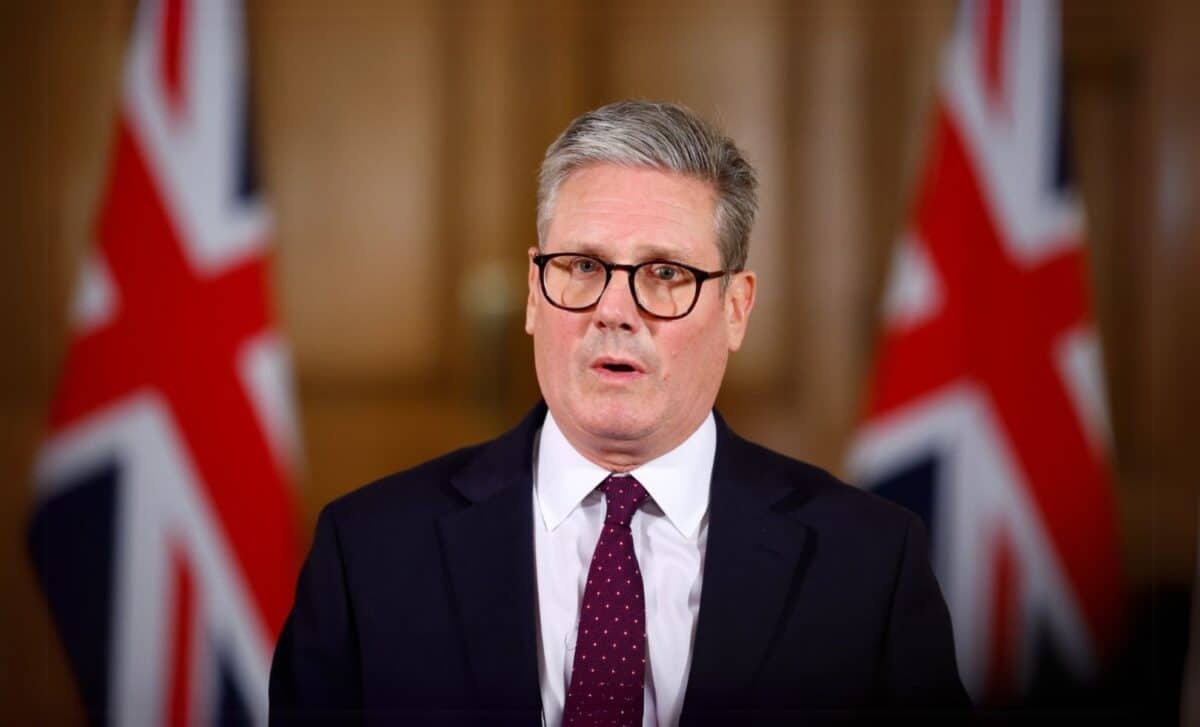In a significant policy shift, Prime Minister Keir Starmer has announced that the UK will raise its defense spending to 2.5% of its GDP by 2027, signaling the country’s commitment to strengthening its military capabilities in response to growing global insecurity.
This move, reported by the New York Times, comes ahead of Starmer’s scheduled meeting with U.S. President Donald Trump, where he hopes to discuss NATO’s future, reaffirm support for Ukraine, and address broader security concerns facing Europe and the Western alliance.
A substantial increase in defense expenditure
The UK currently spends 2.3% of its GDP on defense, but this will rise to 2.5% by 2027, marking an increase of £13.4 billion ($17 billion) annually. Starmer also set a long-term target of increasing defense spending to 3% of GDP by 2035.
This decision comes in light of rising geopolitical tensions, particularly the ongoing conflict in Ukraine and Russia’s increasing assertiveness. The announced boost in defense spending is described by Starmer as the “biggest sustained increase in defense spending since the end of the Cold War.”
The decision to reduce development aid
To fund the defense spending increase, Starmer’s government will cut overseas development aid from 0.5% to 0.3% of GDP. This controversial decision has sparked criticism, with humanitarian organisations warning of the consequences for global health and security.
Former UK foreign secretary David Miliband, now head of the International Rescue Committee, called the cut “devastating” for people in need around the world. Miliband highlighted that without humanitarian aid, the number of people fleeing conflict zones could increase, and global health would be severely compromised.
Liberal Democrat legislator Monica Harding also expressed concern, describing the move as “short-sighted and a strategic and moral mistake” that could give more leverage to countries like Russia and China.
Striking a balance between defense and diplomacy
The announcement comes at a time when Europe is reassessing its defense strategy. While NATO remains central to the UK’s security policy, Starmer also seeks to reinforce ties with Europe in the post-Brexit era.
This move highlights the UK‘s broader goal of strengthening transatlantic alliances while ensuring it is well-positioned to contribute to global security. Starmer emphasised that “tyrants like Putin only respond to strength,” and stated that the UK must stand by Ukraine to prevent economic instability and security threats from growing.
Challenges ahead in the meeting with Trump
Starmer’s upcoming meeting with President Trump will test the strength of the UK’s position within NATO. Trump has long been critical of European allies’ defense spending and has called on them to do more.
Starmer, however, is committed to ensuring that the UK maintains a strong relationship with both the U.S. and its European partners, rejecting any false dichotomy between the two sides of the Atlantic.
Ahead of the meeting, Starmer reiterated the importance of NATO and said, “I want this relationship to go from strength to strength,” aiming to strengthen the UK-U.S. alliance despite the differing foreign policy approaches.
Global security dynamics are rapidly shifting, and Starmer’s pledge to increase defense spending is seen as a pivotal move for the UK as it seeks to adapt to these changes.
This commitment reflects the nation’s determination to maintain its influence and security in an increasingly unstable world, especially in light of rising geopolitical tensions.
By strengthening its defense posture, the UK aims to solidify its role on the global stage and ensure its strategic interests are safeguarded in the face of emerging threats.









